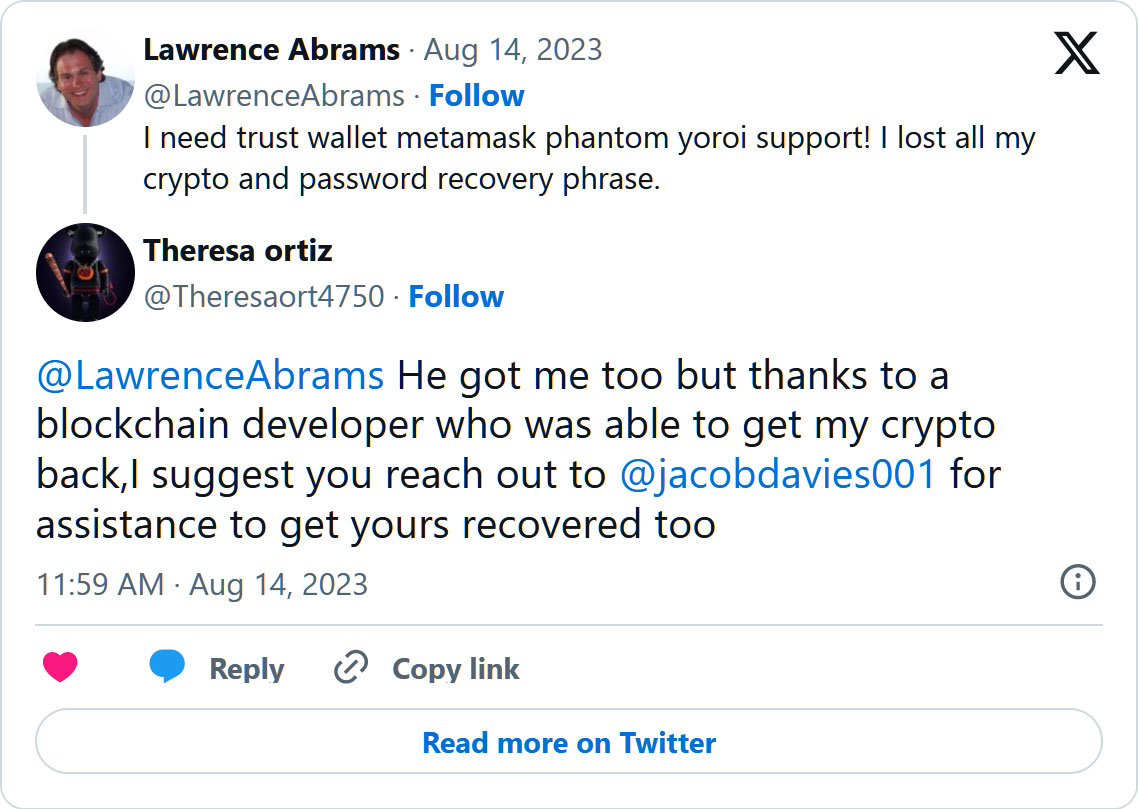A cryptocurrency fraud workshop co-hosted by the Delta Police Department last fall identified over 1,100 victims worldwide, including a ‘significant number’ in Canada.
On Sept. 16 and 17, 2024, the DPD and blockchain analytics company Chainalysis hosted “Operation DeCloak,” bringing together representatives from law enforcement agencies including the RCMP, Victoria Police Department, Vancouver Police Department, the BC Securities Commission, the BC Prosecution Service and the BC Financial Services Authority, as well as key stakeholders from cryptocurrency exchanges such as Shakepay and others.
The initiative was a localized “sprint” of Chainalysis’ “Operation Spincaster,” a series of public-private collaborations designed to disrupt and prevent cryptocurrency scams. Spincaster itself spun out from “Operation Disruption,” a collaboration between Chainalysis and the Calgary Police Service in March 2024.
“Leveraging the transparency of the blockchain, Chainalysis proactively identified thousands of compromised wallets. This actionable intelligence formed the basis of a series of operational sprints across six countries (U.S., U.K., Canada, Spain, Netherlands and Australia) with over 100 attendees, including 12 public sector agencies and 17 crypto exchanges,” the company said in a press release.
“Over 7,000 leads were disseminated during these sprints, relating to approximately US$162 million of losses. These leads were used to close accounts, seize funds and build intelligence to prevent future scams.”
During last fall’s Operation DeCloak, Chainalysis led training sessions in investigating leads, tracing stolen funds and identifying compromised wallets using the company’s proprietary “Crypto Investigations Solution.”
According to a DPD press release, 240 crypto addresses were closely examined, revealing an estimated collective loss of C$35 million.
SEE ALSO: Court rejects environmental challenge to massive Delta port expansion
The event also promoted proactive policing and disruption strategies aimed at combating fraud, with particular emphasis on a growing tactic known as “approval phishing” used by romance and investment scammers targeting cryptocurrency transactions.
The method involves scammers gaining their victim’s trust by promoting false investment opportunities with the promise of high returns, thereby convincing victims to unknowingly approve malicious blockchain transactions.
The initial transaction gives the scammer access to tokens in the victim’s digital wallet without the victim’s knowledge, resulting in unauthorized withdrawals.
Police say scammers typically connect with their victims through social media, or via apps or pop-up ads.
During Operation DeCloak, police say immediate steps were taken to notify identified victims of these scams.
“With the co-operation of the exchange companies, affected individuals were promptly contacted with the goal of preventing further harm,” the DPD said in its press release.
Since the workshop, the department has successfully deployed the techniques learned through Operation DeCloak.
“The technique was applied to a previous investigation which identified stolen cryptocurrency funds in a blacklisted address containing US$1.2 million. This address was in the process of being seized by an overseas police agency,” the department said.
Using the DeCloak techniques, the DPD’s Cybercrime Unit has identified an additional 70 transactions worth US$800,000 sent from Canadian exchanges. Investigators are identifying those victims and seizing the funds from the blacklisted address so they can be returned.
“This collaboration with Chainalysis and cryptocurrency exchanges is a testament to the DPD’s focus on innovation and commitment to community safety and well-being.”
SEE ALSO: Conservative candidate files court petition over Surrey ‘voting irregularities’
SEE ALSO: Good Samaritan saves 3 people in fiery single-car crash in Surrey























/cdn.vox-cdn.com/uploads/chorus_asset/file/25822586/STK169_ZUCKERBERG_MAGA_STKS491_CVIRGINIA_A.jpg)

/cdn.vox-cdn.com/uploads/chorus_asset/file/25821992/videoframe_720397.png)



